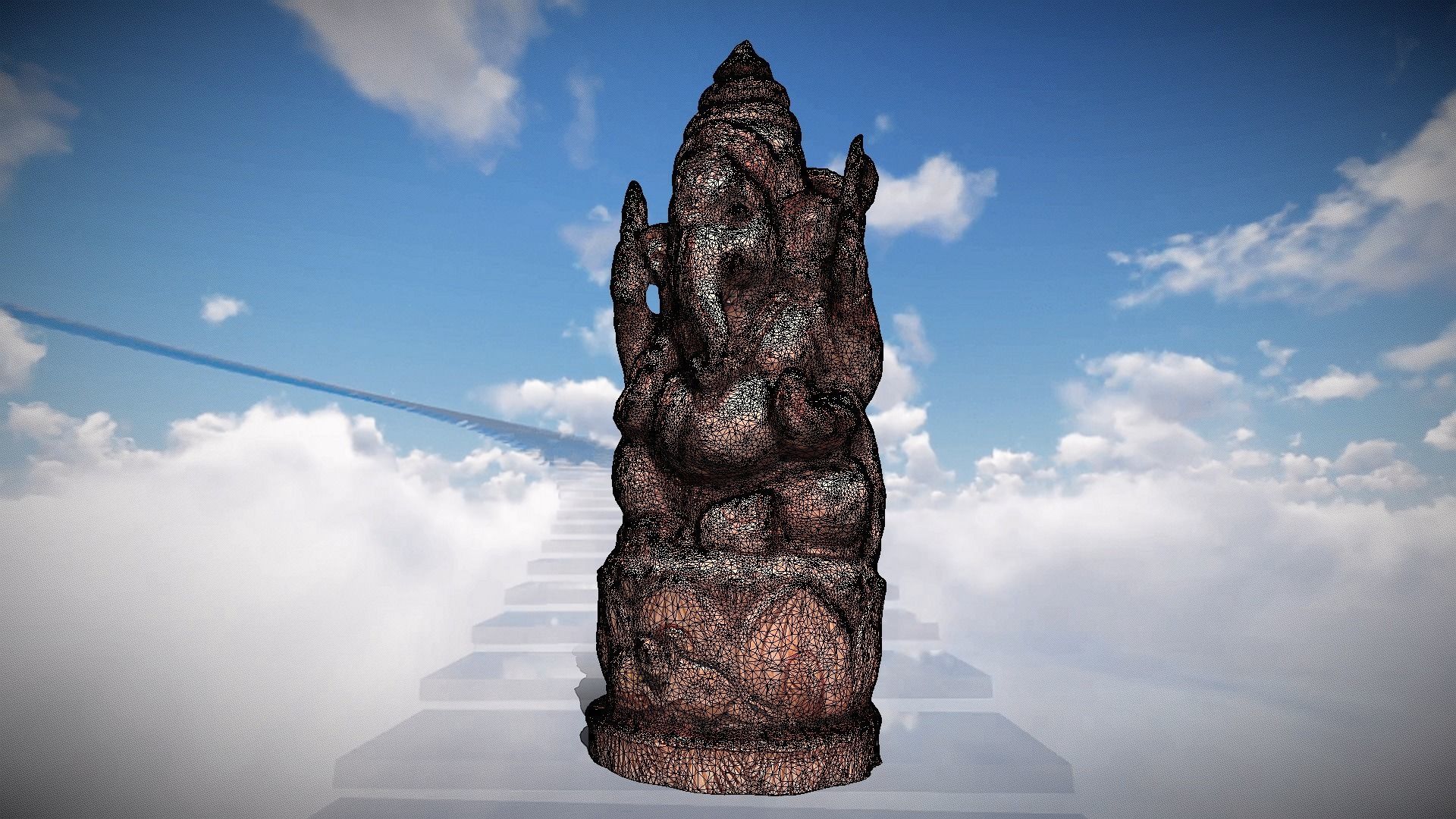
Character - Ganesha Statue 3D print model
Ganesha (Sanskrit: गणेश, IAST: Gaṇeśa), also known as Ganesh, Ganapati, Vinayaka, and Pillaiyar, is one of the best-known and most worshipped deities in the Hindu pantheonand is the Supreme God in Ganapatya sect. His depictions are found throughout India.Hindu denominations worship him regardless of affiliations.Devotion to Ganesha is widely diffused and extends to Jains and Buddhists and includes Nepal, Philippines, Bangladesh, Sri Lanka, Indonesia (Java), Thailand, Myanmar, China, and Japan and in countries. Although Ganesha has many attributes, he is readily identified by his elephant head. He is widely revered, more specifically, as the remover of obstacles and thought to bring good luck; the patron of arts and sciences; and the deva of intellect and wisdom. As the god of beginnings, he is honoured at the start of rites and ceremonies. Ganesha is also invoked as a patron of letters and learning during writing sessions. Several texts relate mythological anecdotes associated with his birth and exploits. The name Ganesha is a Sanskrit compound, joining the words gana (gaṇa), meaning a 'group, multitude, or categorical system' and isha (īśa), meaning 'lord or master'. The word gaṇa when associated with Ganesha is often taken to refer to the gaṇas, a troop of semi-divine beings that form part of the retinue of Shiva, Ganesha's father. The term more generally means a category, class, community, association, or corporation. Some commentators interpret the name Lord of the Gaṇas to mean Lord of Hosts or Lord of created categories, such as the elements. Ganapati (गणपति; gaṇapati), a synonym for Ganesha, is a compound composed of gaṇa, meaning group, and pati, meaning ruler or lord. Though the earliest mention of the word Ganapati is found in hymn 2.23.1 of the 2nd-millennium BCE Rigveda,



































